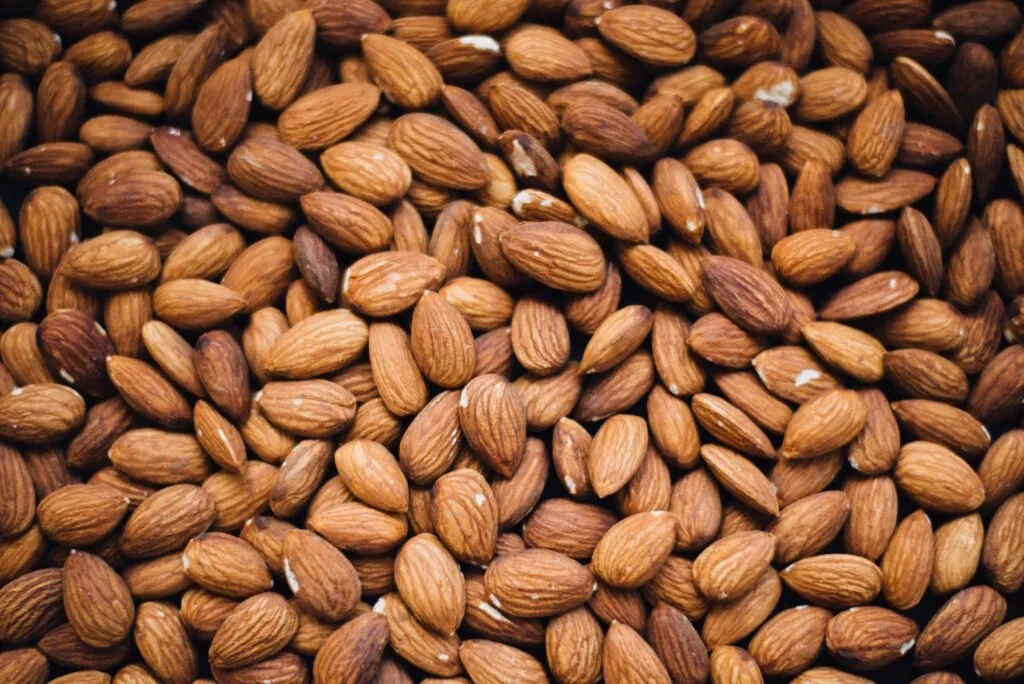Eating Almonds Help Reduce Wrinkles and Uneven Skin Tone
Eating Almonds Help Reduce Wrinkles and Uneven Skin Tone: In the pursuit of eternal youth, humans have sought various remedies and treatments to maintain smooth, radiant skin. From expensive creams to elaborate skincare routines, the market is flooded with products promising to turn back the clock. However, amidst this sea of options, a humble yet powerful contender has emerged – almonds.
Recent discussions have surfaced suggesting that consuming almonds may hold the key to reducing wrinkles and achieving a more even skin tone. But is there any truth to this claim, or is it just another beauty myth? Let’s delve into the science and expert opinions to uncover the reality behind this intriguing notion.
The Almond Advantage: A Nutrient Powerhouse
Almonds are not just a delicious snack; they are also packed with essential nutrients beneficial for overall health, including skin health. Rich in vitamin E, an antioxidant known for its anti-aging properties, almonds help protect the skin from damage caused by free radicals, thereby reducing the formation of wrinkles and fine lines.
Moreover, almonds contain significant amounts of vitamin B2 (riboflavin) and niacin, which play crucial roles in promoting healthy skin by supporting cell regeneration and repair processes. Additionally, the presence of omega-3 fatty acids in almonds helps maintain skin elasticity, contributing to a smoother complexion.
Expert Insights: What Do Dermatologists Say?
Dr. Sarah Collins, a board-certified dermatologist, emphasizes the importance of incorporating almonds into a balanced diet for overall skin health. She explains, “Almonds contain vital nutrients such as vitamin E and omega-3 fatty acids, which help nourish the skin from within. While almonds alone may not be a miracle solution, including them in your diet can complement your skincare routine and contribute to a more youthful appearance over time.”
To shed light on the potential benefits of almonds for skin health, we turn to dermatologists for their expert opinions.
Similarly, Dr. Michael Wong, a renowned skincare specialist, underscores the significance of a holistic approach to skincare. He notes, “While topical treatments are essential for addressing specific skin concerns, maintaining a nutritious diet is equally crucial for supporting skin health from the inside out. Almonds offer a convenient and tasty way to boost your intake of skin-loving nutrients.”
Incorporating Almonds into Your Beauty Routine
So, how can you harness the potential benefits of almonds for your skin? Here are some simple ways to incorporate almonds into your daily diet:
- Snack Smartly: Swap unhealthy snacks with a handful of almonds for a satisfying and nutritious treat.
- Add to Meals: Sprinkle chopped almonds over salads, oatmeal, or yogurt for an added crunch and nutrient boost.
- Blend into Smoothies: Incorporate almonds into your morning smoothie for a creamy texture and an extra dose of vitamins.
- Create DIY Face Masks: Combine ground almonds with honey and yogurt to create a nourishing face mask that hydrates and exfoliates the skin.
Final Thoughts: The Beauty of Almonds
While eating almonds alone may not miraculously erase wrinkles or magically transform your skin overnight, their nutrient-rich profile can undoubtedly contribute to a healthier, more radiant complexion over time. By incorporating almonds into your diet alongside a consistent skincare regimen and lifestyle habits, you can support your skin’s natural beauty from the inside out.
So, the next time you reach for a snack, consider grabbing a handful of almonds and savoring not only their delicious flavor but also their potential to nourish your skin and unveil a more youthful glow. After all, when it comes to skincare, sometimes the simplest solutions are the most effective.
FAQs:
Can eating almonds really reduce wrinkles and uneven skin tone?
While almonds contain beneficial nutrients like vitamin E, omega-3 fatty acids, and antioxidants, eating them alone may not eliminate wrinkles or uneven skin tone. However, incorporating almonds into a balanced diet rich in fruits, vegetables, and other nutrient-dense foods can support overall skin health and contribute to a more youthful appearance over time.
How many almonds should I eat per day to see results in my skin?
There is no one-size-fits-all answer to this question, as individual dietary needs and preferences vary. However, experts generally recommend consuming a small handful of almonds (about 1 ounce or 23 almonds) per day as part of a well-rounded diet. Consistency is key, so incorporating almonds into your daily routine over an extended period may yield the best results for your skin.
Can almond oil be used topically for skincare purposes?
Yes, almond oil is a popular natural skincare ingredient known for its moisturizing and nourishing properties. When applied topically, almond oil can help hydrate the skin, improve elasticity, and reduce inflammation. It is often used in facial oils, moisturizers, and massage oils to promote healthy skin.
Are there any potential side effects of eating almonds for skin health?
In general, almonds are safe for consumption and are well-tolerated by most individuals. However, some people may be allergic to almonds or other tree nuts, so it’s essential to exercise caution if you have known nut allergies. Additionally, overconsumption of almonds or any food can lead to weight gain or other health issues, so moderation is key.
Can almonds replace skincare products like moisturizers and serums?
While almonds offer valuable nutrients for skin health, they cannot entirely replace skincare products like moisturizers and serums. Topical skincare products are formulated with specific ingredients targeted at addressing various skin concerns, such as hydration, anti-aging, and brightening. However, incorporating almonds into your diet can complement your skincare routine and support overall skin health from within.





